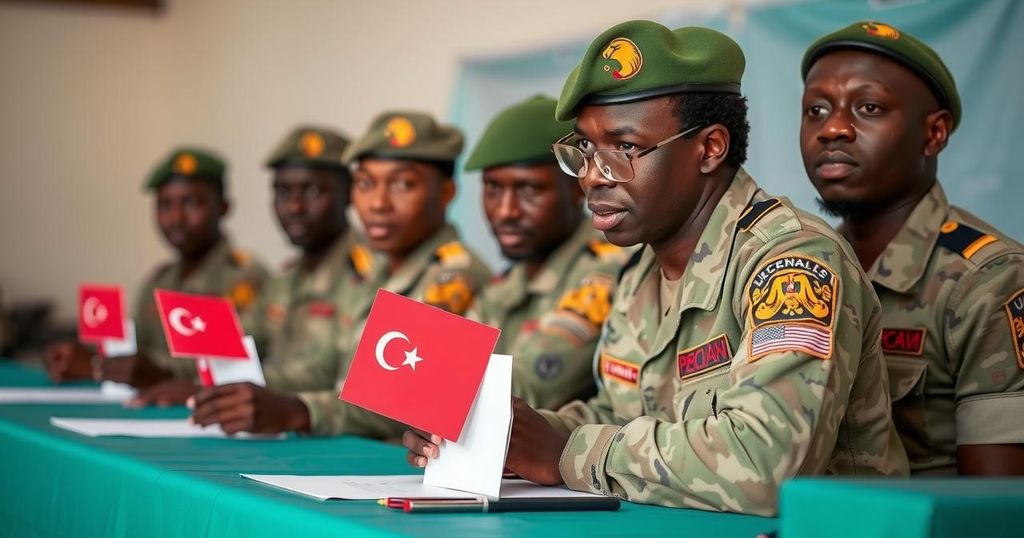Military Support Requested Ahead of Chad’s Controversial Elections

Chad’s electoral commission requests military assistance amid rising violence leading up to the December 29 elections. Increased opposition activity has disrupted MPS campaign efforts, with over 75 groups labeling the elections a “masquerade.” Significant tensions hint at possible conflict if adequate protection for election officials is not guaranteed, raising concerns over the legitimacy of the electoral process as Chad moves past a transitional government period.
Chad’s electoral commission has formally requested military support to ensure the safety of election officials and candidates as the nation approaches its elections scheduled for December 29. This request comes in the wake of increasing violence, with reports indicating that opposition supporters have engaged in physical confrontations to hinder the ruling MPS party’s campaign efforts across various cities. The National Election Management Agency (ANGE) has expressed concern over disruptions to campaign activities and assaults on candidates and electoral personnel.
Amid ongoing tensions, which threaten to escalate into more serious conflict if military intervention does not occur, Vice President Assane Bairra of ANGE has highlighted the dire need for security measures. Approximately 8.3 million out of 18 million eligible voters have registered for these elections, which are crucial as they signify the conclusion of Chad’s three-year transitional governance following the death of former President Idriss Deby Itno in April 2021.
Chad’s political landscape is saturated with competition from around 180 political parties and nearly 1,300 candidates vying for seats in parliamentary elections. Despite an extensive observer presence, a coalition of over 75 opposition parties has denounced the elections as a farce, asserting that President Mahamat Idriss Deby Itno and his Patriotic Salvation Movement are maneuvering to strengthen their hold over power. Recently, the military has reported disbanding roadblocks imposed by opposition members aimed at obstructing campaign events for the MPS.
Avocksouma Djona, president of the Party of Democrats, remarked on the unrest stating, “We want elections to be postponed because all the officials of Chad’s elections management body were appointed by Deby.” Djona further claims that the President exerts control over the constitutional court, enabling him to secure favorable outcomes in electoral matters. In a televised address, President Deby asserted his commitment to fair and transparent elections, a claim swiftly rebutted by opposition factions who argue that the government intends to manipulate the electoral process.
Amid preparations for parliamentary, local council, and regional elections set for December 29 in Chad, the nation’s electoral commission has turned to the military for protection due to escalating violence. This election period marks the end of a transitional governmental phase initiated after the death of President Idriss Deby Itno. Reports of violence include physical attacks on MPS campaign rallies by opposition supporters, raising concerns regarding the integrity of the election process amidst claims of authoritarian maneuvers by the ruling parties. Furthermore, overwhelming evidence suggests widespread dissent from an extensive coalition of political groups who view the forthcoming elections as lacking legitimacy, accusing the Deby administration of using the polls strategically to maintain control. With millions registered to vote, the stability and fairness of these elections remain precarious under the threat of ongoing conflict.
In summary, Chad’s upcoming elections are fraught with tension as the electoral commission seeks military support to safeguard against violence erupting from opposition groups. The election symbolizes a pivotal transition for the nation following a lengthy period of military rule. Given the allegations of manipulative governance by the ruling party and the growing unrest from opposition factions, the legitimacy of the electoral process is uncertain. The effectiveness of security measures and the responses from both opposition and government will determine the path forward for Chad’s democracy.
Original Source: www.voanews.com








